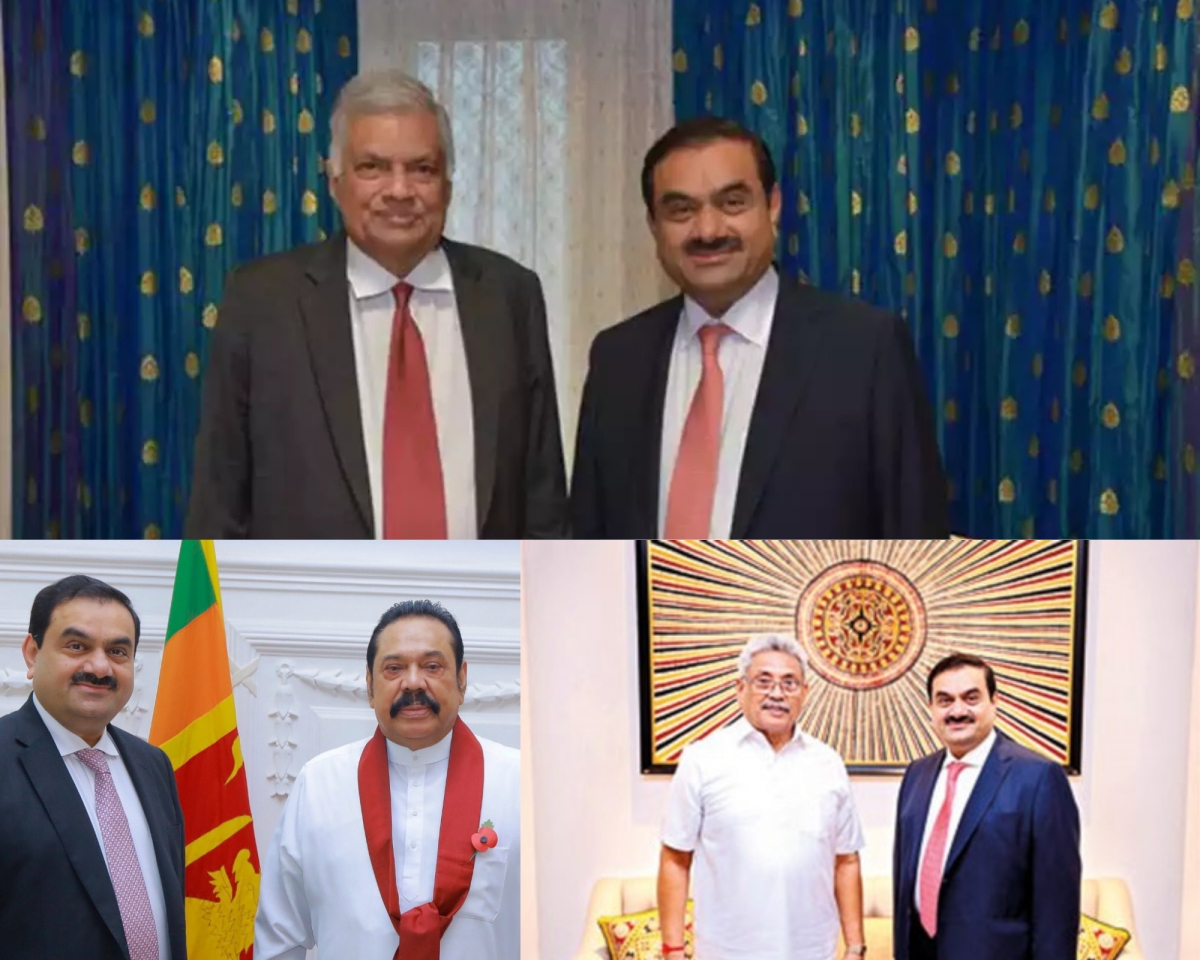Gautam Adani, once India’s second-richest man and Asia’s second-largest tycoon, is now embroiled in a series of criminal charges and controversies that have captured global attention. From fraud allegations in the United States to widespread criticism of his business dealings across Asia and beyond, Adani’s meteoric rise is facing a significant reckoning. His empire, which spans industries from ports and power to commodities, has seen its value plummet. Adani’s name is now synonymous with accusations of corruption, favoritism, and environmental damage.
The Bribery Allegations and US Charges
The latest blow to Adani's reputation came when US prosecutors charged the billionaire with orchestrating a $250 million bribery scheme. The accusations claim that Adani, along with several others, paid bribes to Indian government officials in exchange for lucrative contracts, including a project to develop the world’s largest solar power plant. These fraud and bribery allegations have sparked outrage, particularly after US authorities revealed that the Adani Group sought to conceal these payments in order to raise capital in the US.
Representatives from the Adani Group have vehemently denied the charges, calling them "baseless." However, the legal implications are severe, with US authorities preparing to hold the tycoon accountable. The charges are the latest chapter in a series of damaging events that have plagued Adani's business empire. In a particularly harsh public address, Kenyan President William Ruto announced the cancellation of two major deals with the Adani Group, citing "new information" provided by investigative agencies. These deals, involving a new terminal at Nairobi's Jomo Kenyatta International Airport and a power line project, had sparked public protests in Kenya over concerns about potential job losses and corruption.
The Adani Group in Sri Lanka
The Adani controversy has extended to Sri Lanka, where the group has become a significant player in the country's renewable energy sector. Adani Green Energy’s $442 million Mannar Wind Power Project, approved by the Sri Lankan Board of Investment in 2023, is the subject of public interest litigation filed in the Supreme Court of Sri Lanka. This legal challenge questions the procurement process, the environmental impact assessment (EIA), and the transparency of the project’s approval.
The petitioners argue that the project’s environmental impact has been severely underestimated, particularly in light of Mannar Island’s importance as a key migratory site for birds. Furthermore, they claim that the project’s costs are exorbitant, with power tariffs set at rates that could result in financial losses for the country and burden consumers. Critics have also pointed to the close ties between Adani’s rise and the Indian government, particularly Prime Minister Narendra Modi, with allegations that political influence played a role in securing key deals for the tycoon.
In addition to the Mannar wind project, Adani is also behind a $700 million container terminal project at the Colombo Port. These projects have drawn ire from opposition parties and environmental groups in Sri Lanka, who view them as politically motivated and aimed at repaying debt to India. These concerns have been compounded by accusations of a lack of transparency in the tendering process. The new Sri Lankan government has pledged to review these controversial agreements.
The Controversy Over the Renewable Power Plant
The controversy surrounding the renewable power plant project proposed by India’s Adani Group intensified after claims emerged regarding undue influence from former President Gotabaya Rajapaksa. In November 2021, the Chairman of the Ceylon Electricity Board (CEB), M. M. C. Ferdinando, testified before Parliament's Committee on Public Enterprises (COPE), alleging that President Rajapaksa had been pressured by Indian Prime Minister Narendra Modi to award the project to the Adani Group. According to Ferdinando, the President summoned him and mentioned the Indian pressure.
However, the President’s office swiftly denied these allegations, stating that President Rajapaksa had never authorized the award of the Mannar wind power project to any entity. Shortly after the denial, Ferdinando retracted his testimony, citing emotional pressure during the session and apologizing for his earlier statement regarding India’s involvement.
Indian media dismissed Ferdinando's claims as baseless, noting that official government-to-government discussions are usually documented. The controversy deepened when the Sri Lankan government amended its laws to remove the requirement for competitive tendering in power supply projects, further complicating the situation.
Who is Gautam Adani?
Gautam Adani’s journey from a middle-class textile family in Ahmedabad to becoming one of the richest individuals in the world is nothing short of remarkable. Founded in 1988, the Adani Group initially focused on commodities trading before expanding into diverse sectors, including energy, infrastructure, and agriculture. Adani’s rise was accelerated by his close political ties, particularly with Indian Prime Minister Modi, whose government has faced repeated accusations of favoritism toward Adani's businesses.
In 2022, Adani briefly surpassed Elon Musk to become the world’s wealthiest person, but his fortune began to unravel shortly thereafter. A report by the US-based short-seller Hindenburg Research accused the Adani Group of stock manipulation and improper use of offshore tax havens, leading to a loss of over $150 billion in market value. Despite attempts to recover from these losses, Adani’s reputation has been irreparably damaged by mounting allegations of corruption, fraud, and political favoritism.
The most recent charges in the US are just the latest blow to Adani’s public image. US authorities revealed that Adani had conspired to pay bribes to Indian government officials to secure supply contracts and develop key infrastructure projects. This alleged scheme spanned multiple years and was intended to secure billions of dollars in profit over the long term.
The Broader Impact
The ongoing controversies surrounding Adani have broader implications for India’s economic and political landscape. Opposition parties have regularly accused Prime Minister Modi of using his influence to benefit Adani, with some alleging that the billionaire's rise is a reflection of crony capitalism at its worst. These accusations have sparked protests and legal challenges, both in India and abroad, against the Adani Group’s vast network of projects.










